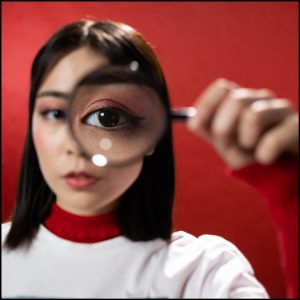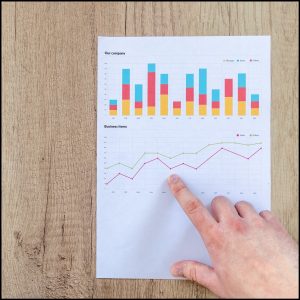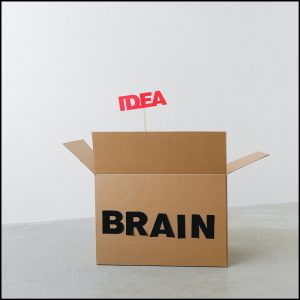 Have you ever found yourself stuck in a difficult situation, unsure of how to move forward? Or have you ever made a decision that you later regretted because you didn’t fully consider all the options? If so, you’re not alone. We all face challenges and make decisions every day, but not everyone has the skills to navigate these situations effectively. That’s where critical thinking comes in.
Have you ever found yourself stuck in a difficult situation, unsure of how to move forward? Or have you ever made a decision that you later regretted because you didn’t fully consider all the options? If so, you’re not alone. We all face challenges and make decisions every day, but not everyone has the skills to navigate these situations effectively. That’s where critical thinking comes in.
Critical thinking is the ability to analyze information and form a judgment. It involves being aware of your own biases and assumptions when encountering information, and applying consistent standards when evaluating sources. In today’s fast-paced and complex world, critical thinking is more important than ever. It can help us make better decisions, solve problems more effectively, and avoid being misled by false information.
But how do we develop our critical thinking skills? Is it something we’re born with, or can we learn and improve over time? The good news is that critical thinking is a skill that can be developed and improved through practice and training. Here, we explore 7 essential critical thinking strategies that can help you unlock your potential and achieve success. Whether you’re a student, a professional, or just someone looking to improve your critical thinking skills, these skills are a great place to start.
Skill 1: Observation
 The first step in developing your critical thinking skills is to improve your observation skills. Observation involves paying close attention to the world around you and gathering information through your senses. This can include noticing details, patterns, and changes in your environment.
The first step in developing your critical thinking skills is to improve your observation skills. Observation involves paying close attention to the world around you and gathering information through your senses. This can include noticing details, patterns, and changes in your environment.
To improve your observation skills, try to be more mindful of your surroundings. Take the time to look around you and notice things that you might normally overlook. Practice active listening when engaging in conversations, paying close attention to what others are saying. And don’t be afraid to ask questions if you don’t understand something.
One way to improve your observation skills is to keep a journal or notebook where you can record your observations. This can help you become more aware of your surroundings and develop your ability to notice details and patterns.
For example, let’s say you’re trying to improve your observation skills in the workplace. You could start by keeping a journal where you record details about your work environment, such as the layout of the office or the behavior of your colleagues. Over time, you might start to notice patterns or changes that you would have otherwise overlooked.
Skill 2: Analysis
 Once you’ve gathered information through observation, the next step is to analyze it. Analysis involves breaking down complex information into smaller parts to better understand it. This can include identifying patterns, relationships, and cause-and-effect connections.
Once you’ve gathered information through observation, the next step is to analyze it. Analysis involves breaking down complex information into smaller parts to better understand it. This can include identifying patterns, relationships, and cause-and-effect connections.
To improve your analysis skills, try to approach information from multiple perspectives. Consider different interpretations of the data and evaluate their strengths and weaknesses. Use logic and reasoning to draw conclusions based on the evidence available.
One way to improve your analysis skills is to practice analyzing different types of information. For example, you could try analyzing a news article or a scientific study. This can help you develop your ability to break down complex information into smaller parts and identify patterns and relationships.
For example, let’s say you’re trying to improve your analysis skills by analyzing news articles. You could start by selecting an article on a topic that interests you and breaking it down into its main points. Then, try to identify any patterns or relationships between the different points. Finally, use logic and reasoning to draw conclusions based on the evidence presented in the article.
Skill 3: Inference
 Inference is the process of drawing conclusions based on the information available. It involves using evidence and reasoning to make educated guesses about what might happen in the future or what might have happened in the past.
Inference is the process of drawing conclusions based on the information available. It involves using evidence and reasoning to make educated guesses about what might happen in the future or what might have happened in the past.
To improve your inference skills, try to think critically about the information available. Consider alternative explanations for events or phenomena and evaluate their plausibility. Use logic and reasoning to draw conclusions based on the evidence available.
One actionable way to improve your inference skills is to practice making predictions based on available information. For example, you could try predicting the outcome of a sports game or an election based on available data. This can help you develop your ability to use evidence and reasoning to make educated guesses about future events.
For example, let’s say you’re trying to improve your inference skills by making predictions about sports games. You could start by gathering data on the teams involved in an upcoming game, such as their past performance or player statistics. Then, use this information to make an educated guess about which team is more likely to win. Finally, evaluate the accuracy of your prediction after the game has been played.
Skill 4: Communication
 Communication is an essential part of critical thinking. It involves expressing your thoughts clearly and effectively, as well as listening actively to others.
Communication is an essential part of critical thinking. It involves expressing your thoughts clearly and effectively, as well as listening actively to others.
To improve your communication skills, try to practice active listening when engaging in conversations. Pay close attention to what others are saying and ask questions if you don’t understand something. When expressing your own thoughts, try to be clear and concise. Use examples or analogies to help others understand your point of view.
One actionable way to improve your communication skills is to practice writing or speaking about complex topics in a clear and concise manner. For example, you could try writing an essay or giving a presentation on a challenging subject. This can help you develop your ability to express your thoughts clearly and effectively.
For example, let’s say you’re trying to improve your communication skills by giving presentations. You could start by selecting a complex topic that interests you and researching it thoroughly. Then, try to organize your information in a clear and concise manner, using examples or analogies to help your audience understand your points. Finally, practice delivering your presentation in front of a mirror or a small group of friends to improve your delivery.
Skill 5: Problem-Solving
 Problem-solving is another important aspect of critical thinking. It involves using logic and reasoning to identify solutions to complex problems.
Problem-solving is another important aspect of critical thinking. It involves using logic and reasoning to identify solutions to complex problems.
To improve your problem-solving skills, try to approach problems from multiple perspectives. Consider different solutions and evaluate their strengths and weaknesses. Use logic and reasoning to identify the best course of action.
One actionable way to improve your problem-solving skills is to practice solving complex problems in a structured manner. For example, you could try using a problem-solving framework such as the “5 Whys” or the “Fishbone Diagram” to break down a complex problem into smaller parts and identify the root cause.
For example, let’s say you’re trying to improve your problem-solving skills by using the “5 Whys” framework. You could start by identifying a problem that you’re facing, such as a project that is behind schedule. Then, ask yourself “why” the problem is occurring, and continue asking “why” until you’ve identified the root cause of the problem. Finally, use this information to develop a solution that addresses the root cause of the problem.
Another actionable way to improve your problem-solving skills is to practice generating multiple potential solutions to a problem. This can help you develop your ability to think creatively and consider different options when faced with a challenge.
For example, let’s say you’re trying to improve your problem-solving skills by generating multiple potential solutions to a problem. You could start by identifying a problem that you’re facing, such as a difficult decision that you need to make. Then, try to generate as many potential solutions as possible, without judging their feasibility or effectiveness. Finally, evaluate each potential solution and select the best one based on its strengths and weaknesses.
Skill 6: Open-Mindedness
 Open-mindedness is an essential trait for critical thinkers. It involves being willing to consider new ideas and perspectives, even if they challenge your existing beliefs.
Open-mindedness is an essential trait for critical thinkers. It involves being willing to consider new ideas and perspectives, even if they challenge your existing beliefs.
To improve your open-mindedness, try to expose yourself to new ideas and perspectives regularly. Read books or articles on topics that are new or unfamiliar to you. Engage in conversations with people who have different backgrounds or experiences from your own.
One actionable way to improve your open-mindedness is to practice challenging your own beliefs and assumptions. For example, you could try engaging in a debate or discussion with someone who has a different perspective from your own. This can help you develop your ability to consider new ideas and perspectives, even if they challenge your existing beliefs.
Another way to improve your open-mindedness is to practice being receptive to feedback and criticism. This can help you develop your ability to consider other people’s perspectives and learn from their experiences.
For example, let’s say you’re trying to improve your open-mindedness by being more receptive to feedback and criticism. You could start by seeking out feedback from others on a project or task that you’ve completed. Then, try to listen actively to their feedback and consider their perspective. Finally, use this feedback to improve your performance and learn from your mistakes.
Skill 7: Continuous Learning
 Continuous learning is an important part of developing your critical thinking skills. It involves being curious about the world around you and seeking out new knowledge regularly.
Continuous learning is an important part of developing your critical thinking skills. It involves being curious about the world around you and seeking out new knowledge regularly.
To improve your continuous learning skills, try to set aside time each week for learning something new. This could involve reading a book, taking an online course, or attending a workshop. Challenge yourself to learn something new and expand your knowledge and understanding of the world.
One actionable way to improve your continuous learning skills is to set specific learning goals for yourself. For example, you could set a goal to learn a new language or skill within a certain timeframe. This can help motivate you to seek out new knowledge and continue learning throughout your life.
Another way to improve your continuous learning skills is to practice reflecting on your learning experiences. This can help you develop your ability to learn from your mistakes and apply what you’ve learned in future situations.
For example, let’s say you’re trying to improve your continuous learning skills by reflecting on your learning experiences. You could start by setting aside time each week for reflection. During this time, think back on what you’ve learned recently and consider how it has impacted you. Then, try to identify any mistakes or challenges that you faced during the learning process. Finally, use this information to develop strategies for overcoming these challenges in the future.
Take the Next Step
 In conclusion, critical thinking is an essential skill that can help us navigate the complex world we live in. By developing our observation, analysis, inference, communication, problem-solving, open-mindedness, and continuous learning skills, we can unlock our potential and achieve success.
In conclusion, critical thinking is an essential skill that can help us navigate the complex world we live in. By developing our observation, analysis, inference, communication, problem-solving, open-mindedness, and continuous learning skills, we can unlock our potential and achieve success.
Now it’s your turn! Which of these critical thinking strategies will you try first? Leave a comment below and share your thoughts with us.

